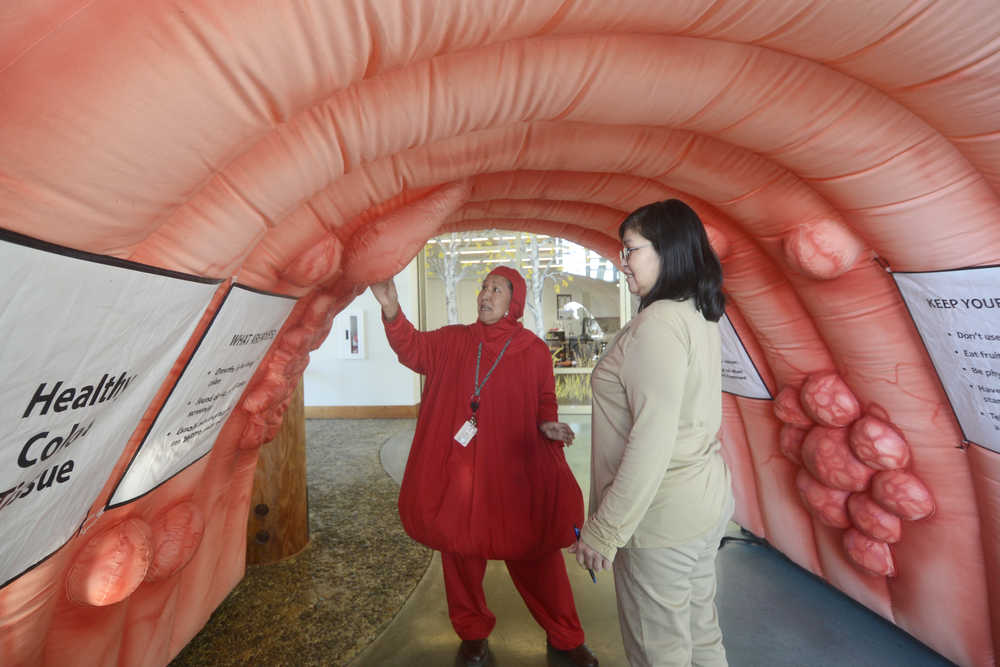It took the death of his uncle to colon cancer to convince Dr. John Molina, director of Kenaitze Indian Tribe Health Systems, to get himself screened five years ago.
Molina had no symptoms himself and said he felt totally healthy, but that doctors found precancerous polyps, or tissue growths.
“I thought to myself, ‘Gee, if (my uncle) didn’t have any symptoms, maybe I’d better get checked,’” Molina said “So it took somebody that close, and unfortunately maybe that’s what happens sometimes, because we don’t have symptoms, that we think we don’t need to (get checked).”
The fact that colon cancer can sometimes produce no symptoms whatsoever is one of several reasons the Dena’ina Wellness Center began hosting a health fair in March, which is Colorectal Cancer Awareness Month, he said. Representatives from the Southcentral Foundation and the Alaska Native Medical Center brought information and visual aids to the Dena’ina Wellness Center for the fair, including an inflatable tunnel affectionately dubbed “Nolan the Colon,” which depicted the inside of both healthy and unhealthy colon anatomy.
For the better part of the day, tribe members, center staff and even some children walked by the displays and learned about lung and breast health in addition to the colon. Wellness Assistant Bessie Phillip, who donned a polyp costume complete with a cape for the occasion, said people tend to get more into the spirit of learning when they have interactive educational materials, such as “Nolan the Colon.”
Getting screened for colorectal cancer early is key to looking after one’s health, she said.
“Our health is important (for us) to live a longer life, see our grandkids, and just to be healthy,” Phillip said. “Early prevention can give you a longer life.”
The risk of getting colorectal cancer is twice as high in Alaska Natives than in non-natives, according to the Alaska Native Medical Center. The center began coordinating with the groups two years ago to put the fair on as a way to promote awareness and share resources for Alaska Natives, Molina said.
While the health fair is open to entire public, Molina said it is especially valuable for Alaska Natives, as their risk of developing colorectal cancer is higher. The suggested age at which Alaska Native men and women should begin getting screened for the cancer is 40, according to the Alaska Native Medical Center. This is a full decade earlier than the U.S. Preventive Services Task Force recommends regular colorectal screening to begin, according to the Centers for Disease Control and Prevention.
While the Dena’ina Wellness Center counsels its patients on screening, Molina said it is helpful to have organizations come together to share information and spread awareness in the public.
“It really helps bring it to a more granular level where people can actually touch and feel and see, and talk to people who are really more into the cancer screening, health education portion (of things),” he said of the health fair.

